Keywords: France
There are more than 200 results, only the first 200 are displayed here.
-

EUREKA STREET TV
- Peter Kirkwood
- 18 February 2015
READ MORE 
-

AUSTRALIA
- Tony Kevin
- 28 January 2015
15 Comments
In his State of the Union address last week, President Obama drew rare bipartisan applause with his anti-Russian rhetoric when he said the US was ‘upholding the principle that bigger nations can’t bully the small’. The Cold War ended 25 years ago, yet the desire to weaken Russia has never gone away. This is nonsense. Russia poses no threat to the west. It is just another country trying to make its own way in an unfriendly world.
READ MORE 
-
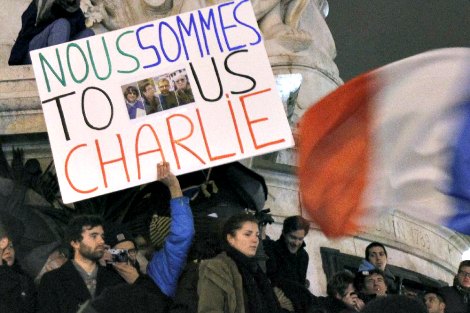
INTERNATIONAL
- Justin Glyn
- 19 January 2015
18 Comments
According to large sections of the media, 'we' are all Charlie now. While it is absolutely right that we stand with the victims and their families in grief and outrage at the terrible acts that took place in Paris earlier this month, predictably we have been told that we should, as a corollary, also defend people’s rights to say what they like, no matter how hurtful it may be.
READ MORE 
-
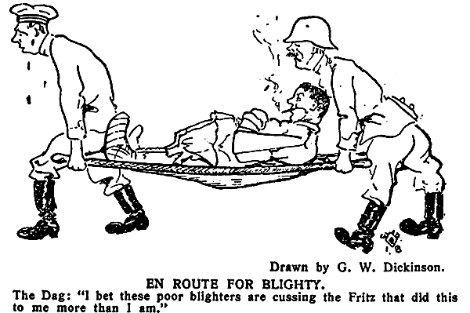
ARTS AND CULTURE
- Gillian Bouras
- 17 December 2014
9 Comments
A soldier's life is usually one of bursts of brief action followed by extended periods of drudgery and boredom, and never was this more true than during this dreadful war of attrition that dragged on apparently interminably between 1914 and 1918. A book titled Aussie was published in 1920 as a bound collection of AIF soldiers’ own paper of the battlefield, wholly written, illustrated and printed in the field.
READ MORE 
-

EUREKA STREET TV
- Peter Kirkwood
- 26 November 2014
3 Comments
Pope Francis is one of the most prominent international leaders at present. In our Skype conversation, US born Vatican watcher Robert Mickens shares his frank views on the relatively brief but highly significant, surprising and unsettling pontificate of Pope Francis, who has declared that almost anything is open for discussion.
READ MORE 
-
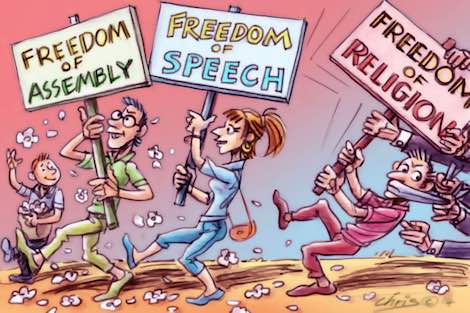
RELIGION
- Kevin Donnelly
- 03 November 2014
29 Comments
Unlike France, Australia's Constitution specifically accepts the place of religion in the broader society, with its reference to Almighty God in the Preamble. Its only stipulation is that governments should not privilege one religion over another, or unfairly discriminate. Moreover, our legal system and institutions might be secular in nature, but they draw heavily on Christian ethics and morality.
READ MORE 
-

AUSTRALIA
- Benedict Coleridge
- 24 October 2014
7 Comments
The repeal of the burka ban in parliament followed woeful comments from ignorant senators and an obvious lack of real government consultation with Australia’s Muslim communities, spotlighted an embarrassing level of illiteracy with regard to Islam. We need to move beyond a token religious ‘tolerance’ that is paired with incomprehension of the religious other, towards promoting a more engaged understanding that entails some comprehension of how religious and other cultural traditions fit together.
READ MORE 
-

AUSTRALIA
- Bronwyn Lay
- 21 October 2014
19 Comments
The French social scientist Bruno Latour referred to the 'uniquely Australian strategy of voluntary sleepwalking towards catastrophe'. His view conflicts with that of our prime minister, who said last week that coal is good for humanity. Abbott's thinking forgets that humanity lives within the earth's critical zone, a home that's not looking so good for humanity.
READ MORE 
-
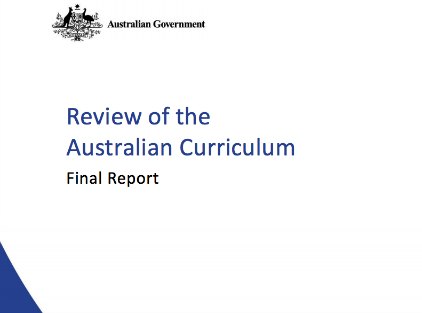
RELIGION
- Chris Middleton
- 16 October 2014
5 Comments
Federal Education Minister Christopher Pyne has supported a national curriculum, while some observers have cautioned that it is not the panacea for improving educational standards that many may hope for. The Federal Review report released in the past week addresses many of the concerns, and on the whole their recommendations seem appropriate and constructive.
READ MORE 
-
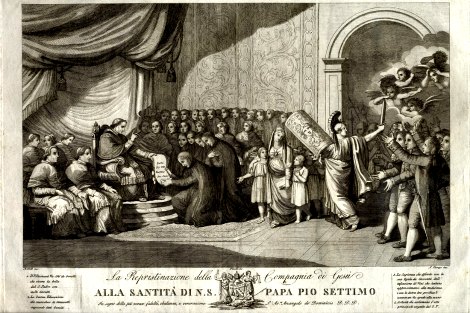
AUSTRALIA
- Frank Brennan
- 07 August 2014
31 Comments
Everyone knows the Jesuits have had a rocky history. They were fabulously successful in educating the European elite for quite some time. But things went off the rails badly in the eighteenth century, and in 1773 Pope Clement XIV issued a decree to 'abolish and suppress the oft-mentioned Society'. Eventually his successor Pope Pius VII issued a papal bull restoring the Society, two hundred years ago this week.
READ MORE 
-
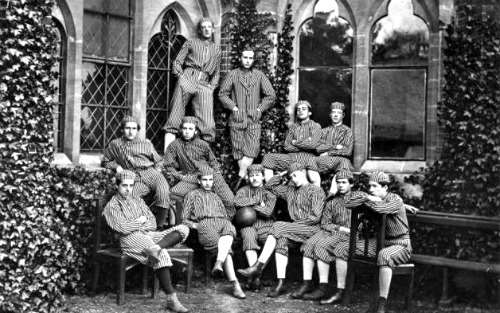
EDUCATION
- Andrew Hamilton
- 11 July 2014
11 Comments
One of the more unlikely pieces of speculation to emerge from the World Cup concerned the origins of soccer in Brazil. A historian of the game claimed that it had been introduced by the Jesuits. According to the thinking of the Jesuits at St Louis School in Itu, near São Paulo, 'all the muscles [would] work harmoniously, and the moral lessons imbibed from sportsmanship [would] be assimilated by the students.'
READ MORE 
-

ARTS AND CULTURE
- Tim Kroenert
- 05 June 2014
1 Comment
In 2002 US Cycling Hall of Famer Jock Boyer was convicted of lewd behaviour with a minor and served time in prison. Today he is the coach of Team Rwanda, a team for Rwandan cyclists, associated with aid organisation Project Rwanda. In Rising From Ashes, the traumatic experiences of his team members, all of whom were living witnesses to the 1994 genocide and lost family members to it, are footnotes to Boyer's redemption story.
READ MORE 